Filter by
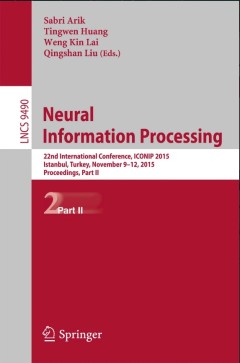
Neural Information Processing:22nd International Conference, ICONIP 2015, Ist…
The four volume set LNCS 9489, LNCS 9490, LNCS 9491, and LNCS 9492 constitutes the proceedings of the 22nd International Conference on Neural Information Processing, ICONIP 2015, held in Istanbul, Turkey, in November 2015. The 231 full papers presented were carefully reviewed and selected from 375 submissions. The 4 volumes represent topical sections containing articles on Learning Algorithm…
- Edition
- 1
- ISBN/ISSN
- 978-3-319-26534-6
- Collation
- XVI, 666
- Series Title
- Lecture Notes in Computer Science
- Call Number
- -
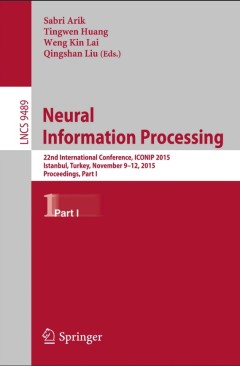
Neural Information Processing:22nd International Conference, ICONIP 2015, Ist…
The four volume set LNCS 9489, LNCS 9490, LNCS 9491, and LNCS 9492 constitutes the proceedings of the 22nd International Conference on Neural Information Processing, ICONIP 2015, held in Istanbul, Turkey, in November 2015. The 231 full papers presented were carefully reviewed and selected from 375 submissions. The 4 volumes represent topical sections containing articles on Learning Algorithm…
- Edition
- 1
- ISBN/ISSN
- 978-3-319-26531-5
- Collation
- XVII, 742
- Series Title
- Theoretical Computer Science and General Issues
- Call Number
- -

The WTO and Food Security Implications for Developing Countries
- Edition
- -
- ISBN/ISSN
- 978-981-10-2179-4
- Collation
- -
- Series Title
- -
- Call Number
- -
- Edition
- -
- ISBN/ISSN
- 978-981-10-2179-4
- Collation
- -
- Series Title
- -
- Call Number
- -
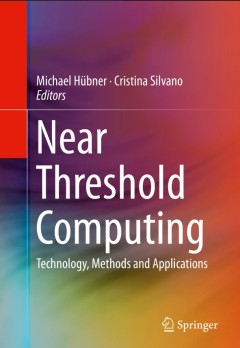
Near Threshold Computing:Technology, Methods and Applications
This book explores near-threshold computing (NTC), a design-space using techniques to run digital chips (processors) near the lowest possible voltage. Readers will be enabled with specific techniques to design chips that are extremely robust; tolerating variability and resilient against errors. Variability-aware voltage and frequency allocation schemes will be presented that will provide perfor…
- Edition
- 1
- ISBN/ISSN
- 978-3-319-23388-8
- Collation
- IX, 100
- Series Title
- -
- Call Number
- -
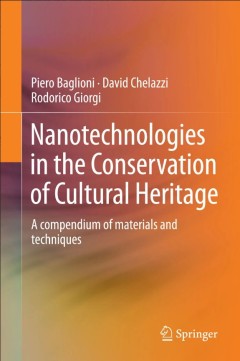
Nanotechnologies in the Conservation of Cultural Heritage
This book presents novel applications of nanotechnology for the preservation of artistic and historical artifacts. It explains the scientific principles behind numerous nanomaterials and discusses their applications to different types of common movable and fixed artistic substrates. It starts with an overview of the nano-tools developed over the last three decades, such as dispersions of nanopa…
- Edition
- 1
- ISBN/ISSN
- 978-94-017-9302-5
- Collation
- X, 144
- Series Title
- -
- Call Number
- -
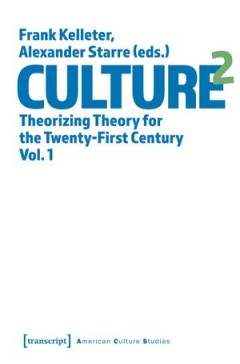
Culture 2: Theorizing Theory for the Twenty-First Century, Vol. 1
How to do cultural studies in the twenty-first century? This essay collection is not a handbook, encyclopedia, or a »state of the field« compendium. Instead, it is a reflexive exercise in cultural studies, featuring fifteen accessible essays on a selection of critical key works published since 2000. The contributors aim to provide readers with a fresh and engaging look at recent criticism, ex…
- Edition
- -
- ISBN/ISSN
- 9783839457870
- Collation
- -
- Series Title
- -
- Call Number
- 306.4 CUL c
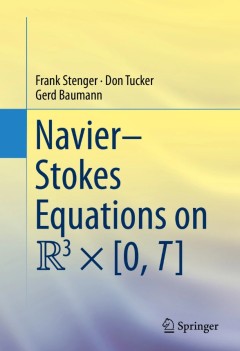
Navier–Stokes Equations on R3 × [0, T]
In this monograph, leading researchers in the world of numerical analysis, partial differential equations, and hard computational problems study the properties of solutions of the Navier–Stokes partial differential equations on (x, y, z, t) ∈ ℝ3 × [0, T]. Initially converting the PDE to a system of integral equations, the authors then describe spaces A of analytic functions that house so…
- Edition
- 1
- ISBN/ISSN
- 978-3-319-27524-6
- Collation
- X, 226
- Series Title
- -
- Call Number
- -
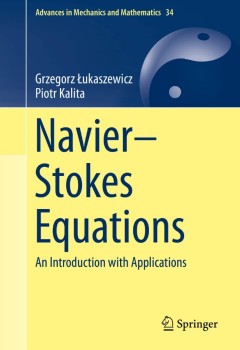
Navier–Stokes Equations:An Introduction with Applications
This volume is devoted to the study of the Navier–Stokes equations, providing a comprehensive reference for a range of applications: from advanced undergraduate students to engineers and professional mathematicians involved in research on fluid mechanics, dynamical systems, and mathematical modeling. Equipped with only a basic knowledge of calculus, functional analysis, and partial differenti…
- Edition
- 1
- ISBN/ISSN
- 978-3-319-27758-5
- Collation
- XIV, 390
- Series Title
- Advances in Mechanics and Mathematics
- Call Number
- -

Nanotechnologies in Food and Agriculture
This book presents a comprehensive overview of new and emerging nanotechnologies. It includes aspects of nanoparticle monitoring, toxicity, and public perception, and covers applications that address both crop growing and treatment of agricultural wastewater. Topics include nanoagrochemicals (nanofertilizers, -pesticides, -herbicides), nanobiosensors, and nanotechnologies for food processing, p…
- Edition
- 1
- ISBN/ISSN
- 978-3-319-14023-0
- Collation
- XV, 347
- Series Title
- -
- Call Number
- -

NF-κB-Related Genetic Diseases
This book presents the diverse clinical, cellular and molecular manifestations of NF-KB-related genetic diseases. It shows that studying patient-related pathologies affecting the components of the NF-KB signaling pathway offers the opportunity to understand the various functions of NF-KB in humans, complementing studies performed with mouse models. In addition, people treating those patients ac…
- Edition
- 1
- ISBN/ISSN
- 978-3-319-25848-5
- Collation
- XII, 70
- Series Title
- SpringerBriefs in Biochemistry and Molecular Biology
- Call Number
- -
 Computer Science, Information & General Works
Computer Science, Information & General Works  Philosophy & Psychology
Philosophy & Psychology  Religion
Religion  Social Sciences
Social Sciences  Language
Language  Pure Science
Pure Science  Applied Sciences
Applied Sciences  Art & Recreation
Art & Recreation  Literature
Literature  History & Geography
History & Geography